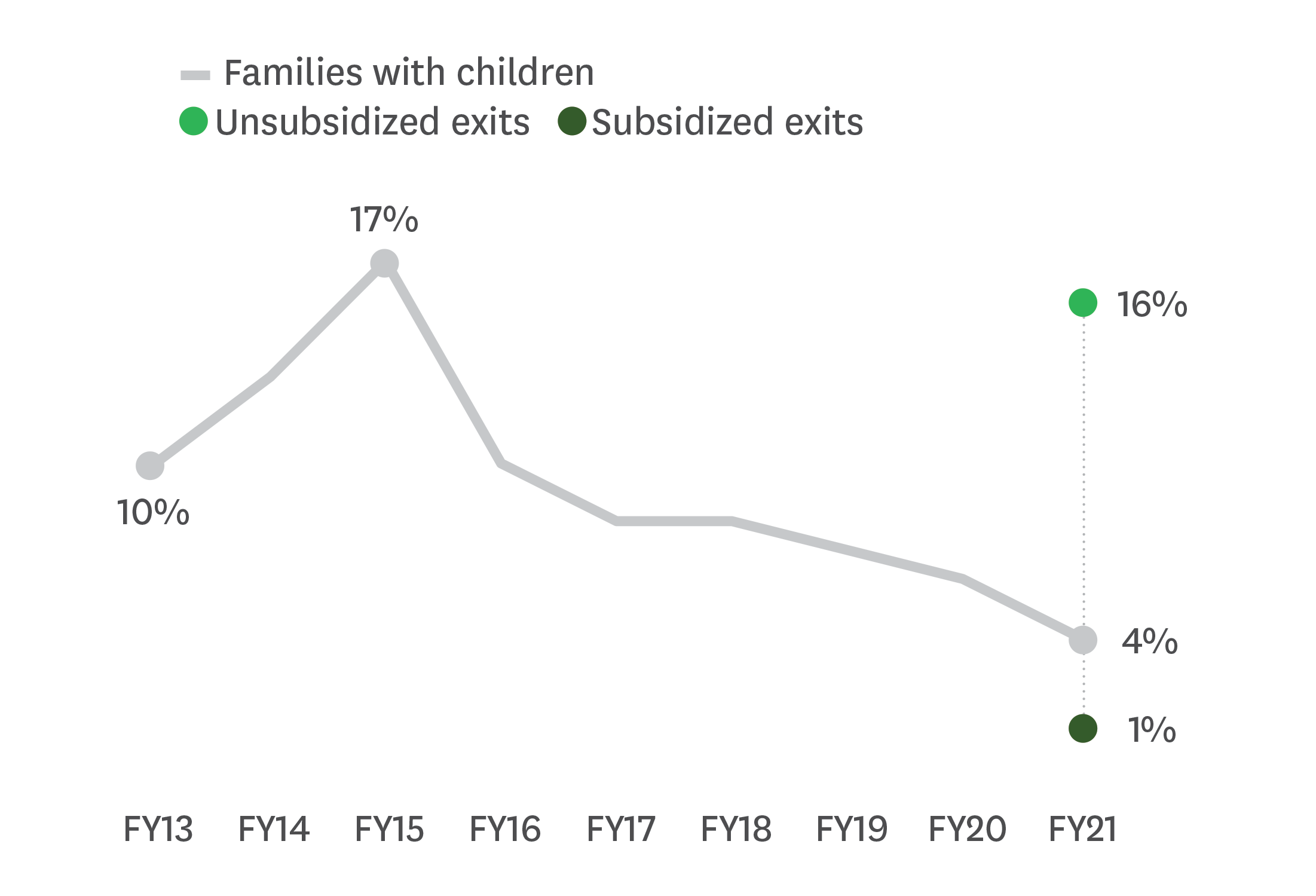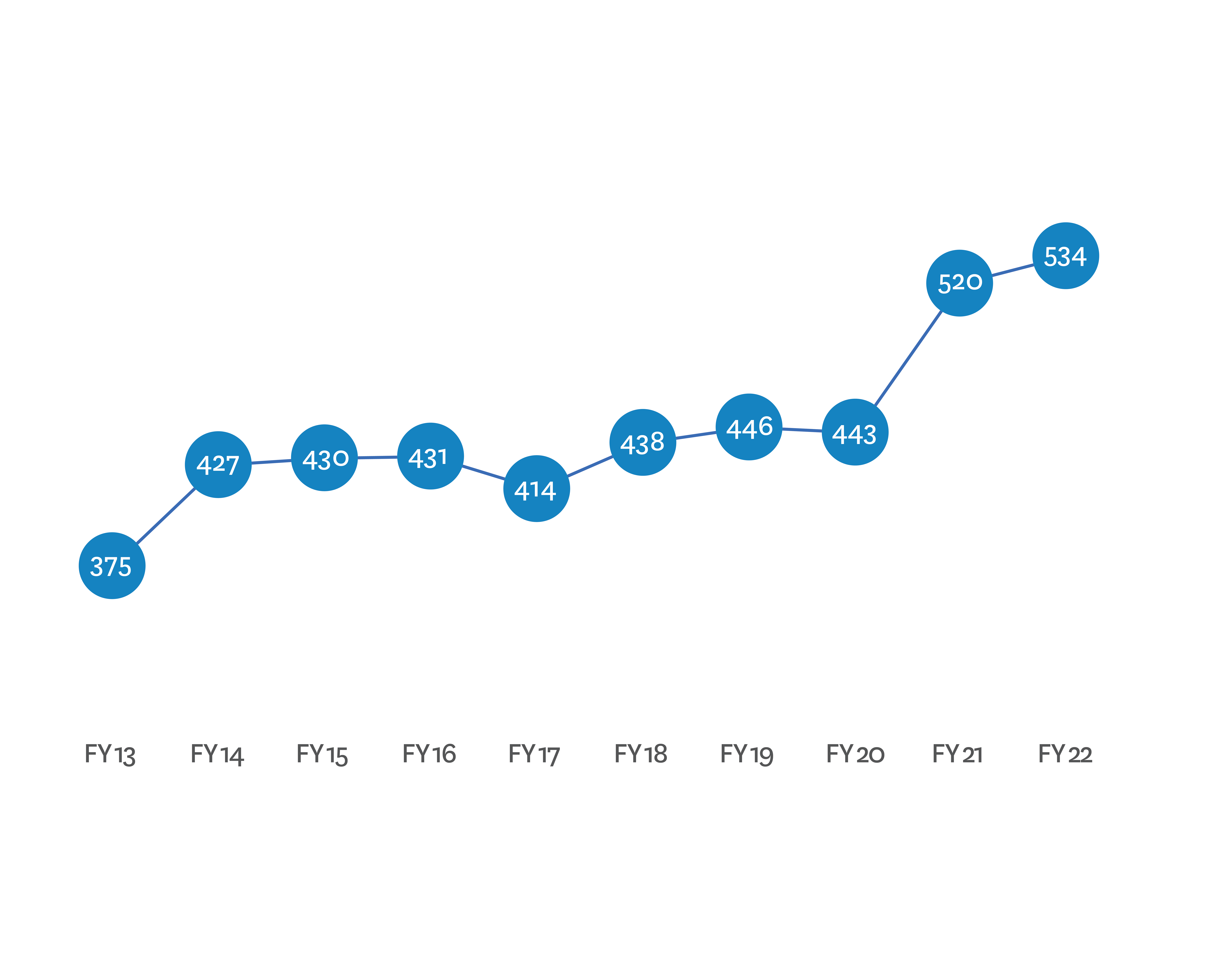

The Shelter Capacity Issue & Asylum-Seeking Families
Insights
October 18, 2022
By: Juan DIaz, Julie Kronick, & Robert Guttersohn
Earlier this month Mayor Adams declared a state of emergency as the influx of migrants from the southern border has put pressure on the city’s already-strained emergency shelter system. Since the declaration, the Adams administration plans to temporarily house approximately 200 migrant families in a Midtown hotel.
But we also know NYC could create additional spaces in the shelter system for migrant families by helping families currently in shelter find stable housing more quickly. The average length of stay for families in shelter has risen significantly over the past 10 years, increasing by 14 days from FY 2021 to FY 2022 (520 days to 530 days) alone. On average, families in shelter stay nearly 18 months now.
Re-entries among families with children into shelter, by exit with and without subsidies

Average Length of Stay for Families with Children in Shelter (days)

One simple way to help alleviate this strain is to eliminate the city’s 90-day rule, which forces families in shelter to wait 90 days before becoming eligible to apply for rental assistance housing vouchers. These subsidies help secure stable, permanent housing: only 1% of families who exit shelter with subsidies return within a year.
CCC, its partners in the Family Homelessness Coalition, and now the City Council are urging the City administration to eliminate the 90-day shelter rule for CityFHEPS eligibility. We believe urgent action must be taken to abolish this rule. Click here to take action and tell City leaders to end the 90 day rule.
CCC also supports City Council Bills that would enhance the wellbeing of families in shelter and reduce administrative barriers to relocate with housing vouchers. Click here to read previous testimony about these issues.
Also in recent weeks, Family Homelessness Coalition members, social services providers, and immigrant advocates have also expressed concern about the City’s ability to fund and coordinate services to address the wide-ranging needs of migrant families and individuals, many of whom are seeking asylum.
CCC and our coalition partners believe the City must take several urgent steps to support migrant families, including providing essential items including winter clothes, toiletries, cash assistance, transportation, and school supplies. We also believe the city must ensure that all its contracted programs provide translation services – both written and verbal – and make permanent investments in legal support for asylum seekers navigating complex and lengthy legal processes including full representation for asylum claims. Inter-agency communication must be improved to ensure the needs of all families are appropriately met.
CCC submitted testimony to City Council in late September on the migrant crisis and DHS shelter capacity issue, urging the City to coordinate resources to meet basic needs for this population as well as helping families in shelter with housing needs. Click here to read the testimony from September 30.



